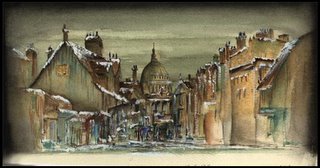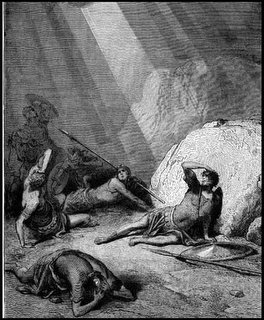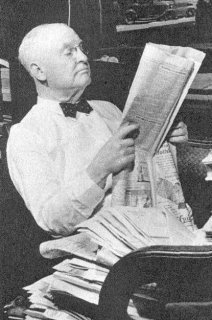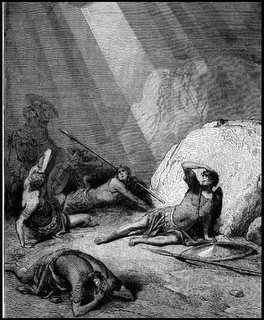
“I have always thought of Christmas time as a good time; a kind, forgiving, charitable, pleasant time; the only time I know of in the long calendar of the year, when men and women seem by one consent to open their shut-up hearts freely.”
Charles Dickens
The weather’s gotten colder here in Emporia, creating the appearance of an old fashioned Christmas season. Things are just about right, which is one of the benefits of living in a city that is tucked between two major storm routes, one to our north and one to our south. We get the cold weather, but little of the crippling snow that the folks around us do.
We spent Monday in Kansas City. Nancy and I were there looking at condominiums and apartments there. We’d been discussing this for a couple of weeks ago. Over that time our thinking, both corporately and individually, had come to a consensus. A second place was not only desirable, but also sensible. The sensibility was the most difficult hurdle for me. I’ve never been one for toys. I’ve never wanted to own a boat, especially knowing that the two times of great joy in a boat owner’s life are the day it’s bought and the day it’s sold. I occasionally see retirees tooling down the highways in motor homes, but the bug has never bitten me. The thought of something I’ve just purchased depreciating by thirty percent as soon as I’ve pulled out of the dealer’s lot or getting six or seven miles to a gallon have always been pre-emptive cures for any itch I might have.
But, a condo or a loft seemed, to us, more sensible. First, real estate appreciates in value. Second, Nancy and I occasionally get the small town blues and a getaway place has become very attractive. Third, we have friends and family who could also crash there for a day or two.
In the end, we decided on a loft in Kansas City’s River Market area. The price was right. The view of the river is wonderful, the amenities superb. So, we’re taking the plunge. We close on January 4th.
Ever since we got back from Kansas City Nancy’s been almost constantly browsing through catalogues, looking for sleeper sofas, day beds, area rugs, wine racks, ladder style book shelves, and what not. Just a while ago she got everything done. She came downstairs, proclaiming, “I know EXACTLY what I want and how I want things to look.” I’d have to say that settles it.
All of this, of course, will make cataloguers like Pottery Barn, Ballard Designs, and LL Bean very happy. For me, this will cut down on my Christmas shopping considerably. Now it’s just the kids and others on our Christmas list.
I think this will fill two needs for Nancy. She loves life here in Emporia, but there’s a considerable part of her that is a city person. I remember how, during our days in New Jersey, she loved going into New York City or our trips to Boston to visit with my brother and sister-in-law. Those trips had a way of putting her in another gear.
It’s not as though we’re abandoning Emporia. It still holds a great deal of charm for us. There are things available to us here that we know we’d never be able to find in a big city. Here in Emporia, for example, we meet friends all the time as we’re out and about. No trip to the grocery store or the Wal-Mart is complete without three or four stops to talk with friends. Here I get to do battle with folks, like Patrick Kelley, who fancy themselves great cosmopolitan crusaders. Here I have the beauty of the Kansas Flint Hills. And, here I get to hear my buddies complain about the Sixth Avenue bottleneck, which usually amounts to nothing more than having to wait in line behind four other cars at traffic lights on the way home from work. The big cities have no such charms.
The grandest sign of the season here in Emporia came last night. Along with a few thousand or so intrepid Emporians, Nancy, Bin Na, our foreign exchange student, and I braved the cold to attend the annual Christmas parade. By big city standards it would in all likelihood be a non-event, but here it’s really big. There were fire trucks, marching bands, floats pulled by farm tractors and pick up trucks, kids dressed like sheep, shepherds, or angels. Just about every float had a Christmas tree. One even had a tree with ornaments reading “Eat Beef,” with a gallery of cowboy cooks barbequing hamburgers a few feet away, at the tail end of the float. I’ll bet you big city types have never seen anything like that at Christmastime.
I don’t think there were any ACLU spies there, but if there had been they would have spent the evening grinding their teeth, in much the same way the legalists of the Apostle Paul’s day spied out Christian liberty, decrying grace and freedom. The kids on the floats kept telling everyone to have a “Merry Christmas.” There were Roman Catholic churches represented, as well as Lutheran, Methodist, Baptist, Presbyterian. There were community groups, including a group of about thirty or forty women from the local Red Hat Society. There were lots of nativities, some in English, some in Spanish. Why, there were even some “happy holidays” floats in evidence too. In sum, there was something for everyone except the miserable among us. For them, nothing would be satisfactory. Their primary aim in life is to maintain misery, and they do it quite well. The rest of us, at least here in Emporia, just celebrate the season and allow them the liberty of their misery. That, it seems to me, is diversity practiced as it should be
As happens almost every year here in Emporia, there was a glitch. At about eight o’clock, while everyone was shivering from the cold, a large army transport vehicle broke down on the corner of Eight and Commercial. While the National Guardsmen searched frantically for jumper cables, the parade just stopped, held in a state of suspended animation. It took about ten minutes or so to get the big rig re-started and things proceeded as originally planned. At about eight-twenty Santa, who brought up the rear, passed in review and it was all over.
I capped the big night off with a big piece of fudge from the Sweet Granada and that was that.
In a month or so Nancy and I will have a crash pad of sorts, a place where we can mingle with the big city folks. We’ll enjoy the life available there, but we’ll also bring the wonder of our life here in Emporia. The result may be a renewal of the country and the cosmopolitan in both of us. Who knows, a bit of the country may rub off on the city folk we meet at the Kansas City River Market and a bit of the cosmopolitan may rub off on friends as we meet them at the Wal-Mart. What could be better?








